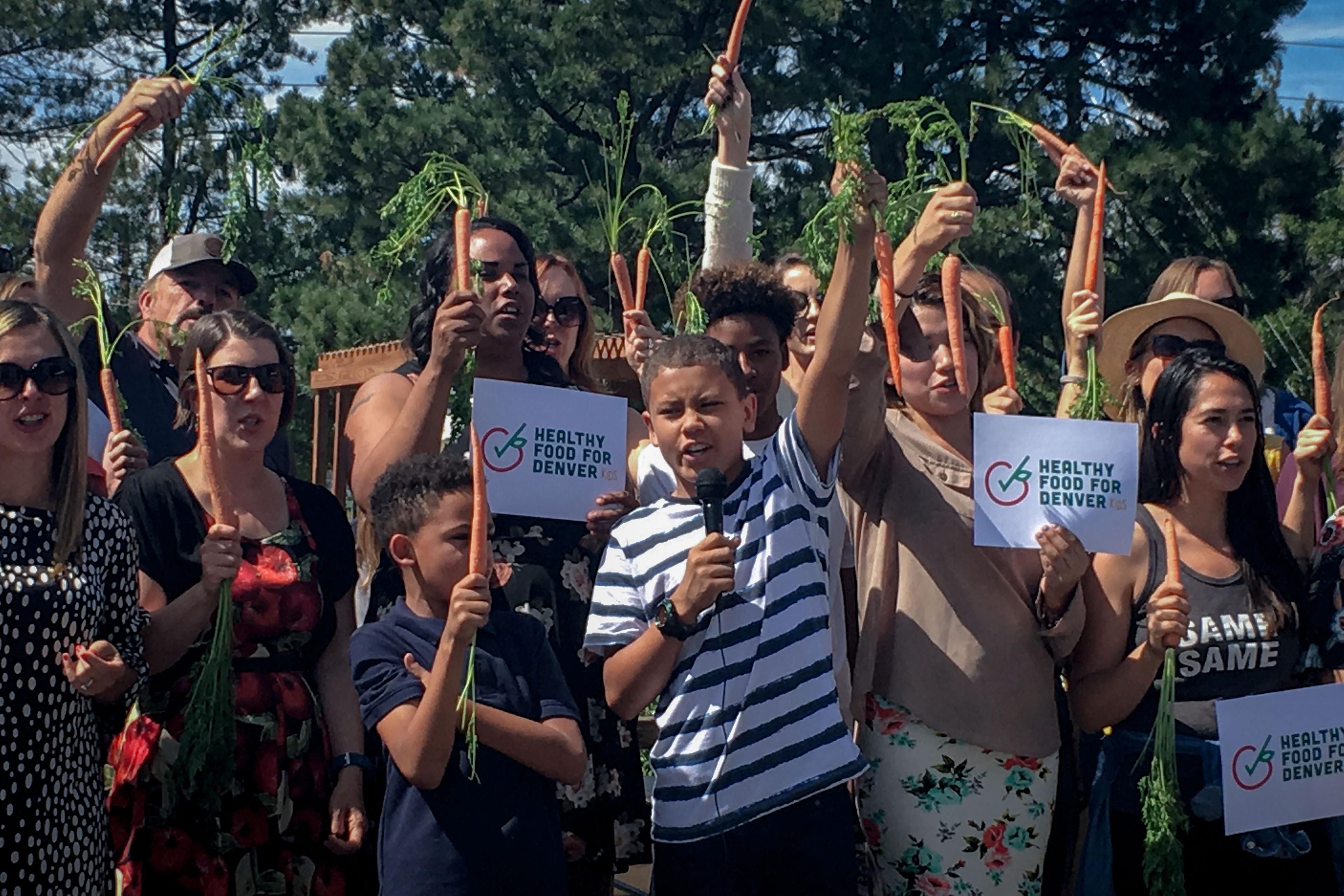

Denver voters will see six ballot proposals in November asking for money to tackle a variety of community needs. The effort to ensure that children in need get healthy food is one of those ballot questions.
The Healthy Food for Denver Kids proposal would raise taxes less than a penny on a $10 purchase, generating roughly $100 million dollars over the life of the tax to funnel into existing food programs.
In Denver’s Montbello neighborhood, the Academy 360 Elementary School has a community garden where anyone from the community can get fresh vegetables and fruit. Once a week the school sponsors a No Cost Grocery Program.
“It’s helpful,” said Josephina Duron, whose six-year-old daughter attends the school.
The grocery program helps dozens of families like hers and it could benefit from the funding if Denver voters agree. Duron said the idea sounds promising.
“Because the kids won’t be eating a lot of junk food, they’ll be eating healthier,” and won’t be overweight, Duron said. “They’ll be regular-sized kids.”

John Auerbach, CEO of the Trust for America’s Health, said a quarter of Colorado kids from 10 to 17 are overweight or obese, a problem even more acute in less affluent communities.
“Even a state that’s as health conscious as Colorado is unfortunately moving in the wrong direction with obesity,” Auerbach said.
In Montbello, you can see the struggle families face to get healthy food for kids. Audrey Senghor, a grandmother of two school-age kids and a volunteer at the Weekly No Cost Grocery Program, describes the neighborhood as a food desert. The major chains have all left and you “have to drive a mile or two just to get to a grocery,” Senghor said. “I think given the size of the neighborhood and it’s constantly growing that should be addressed.”
The neighborhood is also considered a food swamp, where much of what is purchased is fast food. Josephina Duron — who is currently unemployed — is grateful for the healthy food assistance. She’ll leave with a big box of produce that includes peppers, lettuce and bananas.
“It’s healthier for them than chips and soda,” Duron said of her children.
Blake Angelo, the Healthy Food For Denver Kids campaign volunteer chair, notes that Denver’s unemployment rate is 2 percent — but not everyone benefits.
“In a city as great as Denver, we have to do better for our kids, we have to do better for those who don’t have something as simple as a meal,” Angelo said. “It’s hard to go to school with an open mind, if you have an empty stomach.”

The money raised would help kids get three healthy meals each day all year, filling in gaps between school lunch and other programs. The proposal would set up a public commission to review applications. Angelo said that commission would allocate funds to existing groups and schools with a proven track record to expand what they’re doing now.
To date, there’s no organized opposition to the proposal and yet anti-tax advocates are wary.
“It increases taxes on low income people to fund a slush fund and a new governmental entity that can take up to 10 percent of the money,” said Linda Gorman who contracts with the Independence Institute and directs its Health Care Policy Center. The group backs limited government.
“Denver is already awash in dietary advice and healthy food programs,” said Gorman.
For his part, Angelo said the needs far outweigh what programs can now deliver, mostly because “many of them struggle to reach scale because of an issue of resources.”
Denver voters will later decide if healthy food for the city’s children is a priority when ballots go out in the mail October 15.








